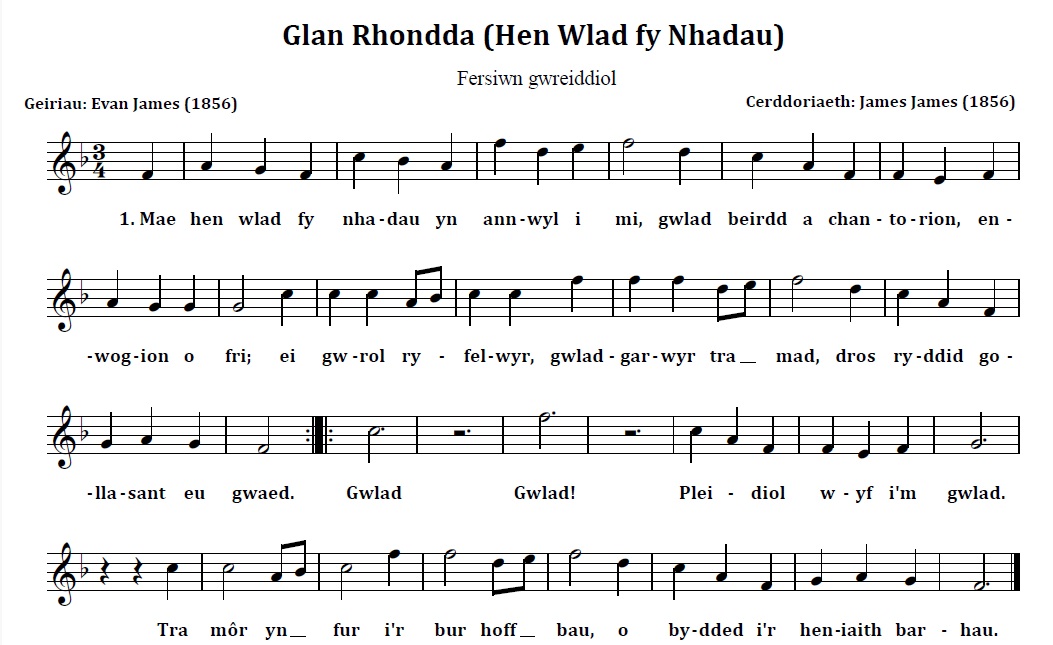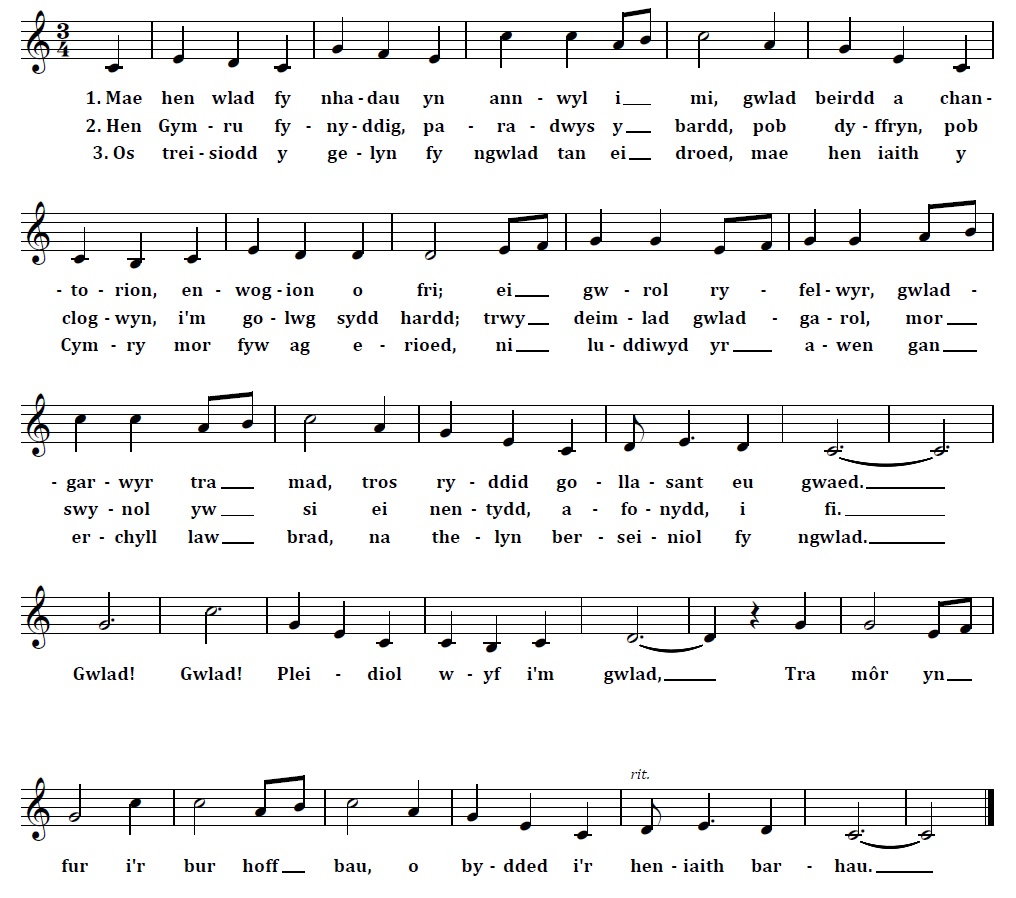'Hen Wlad fy Nhadau' (The Land of my Fathers) is the national anthem of Wales. The words were written in 1856 by Evan James and the tune composed by his son James James. It was originally called 'Glan Rhondda', because that was where it was composed, but was quickly renamed as it gained popularity. Here is the original melody with the first verse and chorus.

Here are the words with a literal translation.
1. Mae hen wlad fy nhadau yn annwyl i mi, The old land of my fathers is dear to me, Gwlad beirdd a chantorion, enwogion o fri; Land of bards and singers, famous men of renown; Ei gwrol ryfelwyr, gwladgarwyr tra mad, Her brave warriors, very splendid patriots, Dros ryddid gollasant eu gwaed. For freedom shed their blood. Gwlad, Gwlad, pleidiol wyf i'm gwlad, Country, Country, I am faithful to my Country. Tra môr yn fur i'r bur hoff bau, While sea is a wall to the pure beloved land, O bydded i'r heniaith barhau. O may the old language endure. 2. Hen Gymru fynyddig, paradwys y bardd; Old mountainous Wales, paradise of the bard, Pob dyffryn, pob clogwyn, i'm golwg sydd hardd Every valley, every cliff, to my look is beautiful. Trwy deimlad gwladgarol, mor swynol yw si Through patriotic feeling, so charming is the murmur Ei nentydd, afonydd, i fi. Of her brooks, rivers, to me. 3. Os treisiodd y gelyn fy ngwlad dan ei droed, If the enemy oppressed my land under his foot, Mae hen iaith y Cymry mor fyw ag erioed, The old language of the Welsh is as alive as ever. Ni luddiwyd yr awen gan erchyll law brad, The muse is not hindered by the hideous hand of treason, Na thelyn berseiniol fy ngwlad. Nor the melodious harp of my country.
In Verse 1, mad is now often written as "mâd", though this does not appear in any dictionary I've checked, and "dros" as "tros". In the chorus, "heniaith" is often written as "hen iaith". The second and third verses are not often sung.
Finally, here is a version with some modifications to the rhythm which are generally adopted nowadays, and all three verses against the notes to show how the words fit. I've also adjusted the key to C so that I can reach the top notes! The original was designed to be sung by a soprano.
